
[xyz-ihs snippet="NavigationLinksBlock-Common"]
A Town With An Ocean View
by Joe Hisaishi

" A Town With An Ocean View " is a soundtrack from the animated film Kiki's Delivery Service. Kiki's Delivery Service is a 1989 Japanese animated film written, produced, and directed by Hayao Miyazaki, adapted from the 1985 novel by Eiko Kadono. It was animated by Studio Ghibli for Tokuma Shoten, Yamato Transport and the Nippon Television Network and distributed by the Toei Company. The film tells the story of a young witch, Kiki, who moves to a new town and uses her flying ability to earn a living. According to Miyazaki, the movie portrays the gulf between independence and reliance in teenage Japanese girls.
Kiki's Delivery Service was released in Japan on July 29, 1989, and won the Animage Anime Grand Prix prize. It was the first film released under a 15-year distribution partnership between The Walt Disney Company and Studio Ghibli. Walt Disney Pictures produced an English dub in 1997, which premiered in United States theaters at the Seattle International Film Festival on May 23, 1998.
[video width="640" height="360" mp4="https://www.easypianoonline.com/wp-content/uploads/2021/05/ATownWithAnOceanView.mp4"]

[xyz-ihs snippet="NavigationLinksBlock-Common"]
Carrying You (Castle In The Sky)
(Easy Version)
by Joe Hisaishi
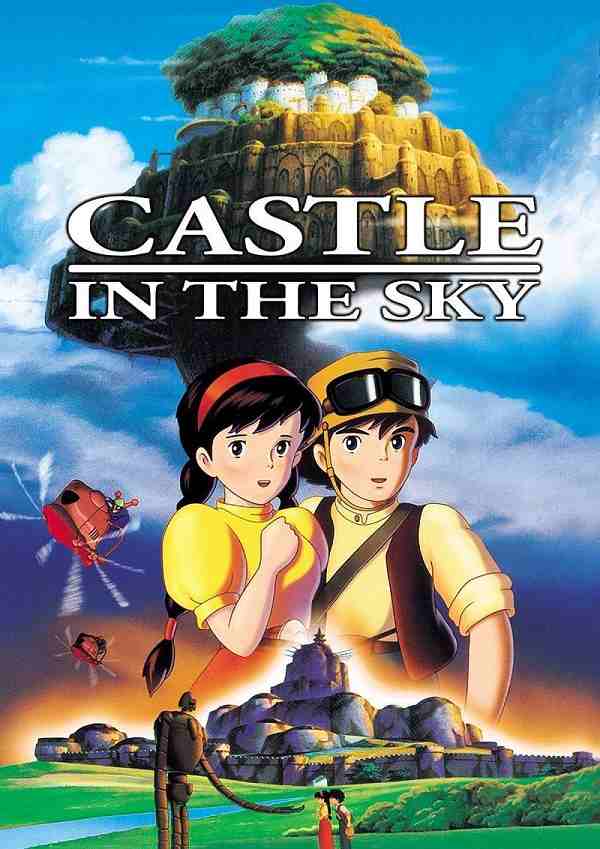
Advanced version of the tutorial can be reached at the link below:

" Carrying You " is a song from the animated film Laputa: Castle In The Sky. Laputa: Castle in the Sky known as simply Castle in the Sky in North America, is a 1986 Japanese animated fantasy adventure film written and directed by Hayao Miyazaki. It was the first film produced by Studio Ghibli and was produced for Tokuma Shoten. It follows the adventures of a young boy and girl in the late 19th century attempting to keep a magic crystal from a group of military agents, while searching for a legendary floating castle. The film was distributed by Toei Company. Laputa: Castle in the Sky won the Animage Anime Grand Prix in 1986.
[video width="640" height="360" mp4="https://www.easypianoonline.com/wp-content/uploads/2021/05/CarryingYou-easy.mp4"]
Lyrics
Carrying You
(English - Translation)
you must be hiding somewhere.
When I see those twinkling stars
I feel nostalgic because
I know you are in one of them.
Let's set out,
pack a bag with
a piece of bread,
a knife, a lamp,
The passion that my father left me,
That look that my mother gave me.
The earth is spinning, concealing you
Your eyes are shining in the glittering light
The earth is spinning, carrying you
carrying us who shall meet someday.
This passion is that my father gave me,
That look my mother gave me.
The earth is spinning, concealing you
Your eyes are shining in the glittering light
The earth is spinning, carrying you,
carrying us who shall meet someday.
Kimi o Nosete
(Japanese – Original)
Ano chiheisen / Kagayaku no wa
Doko ka ni kimi wo / Kakushite iru kara
Takusan no hi ga / Natsukashii no wa
Ano doreka hitotsu ni
Kimi ga iru kara
Saa, dekakeyou!
Hitokire no PAN
NAIFU, RANPU kaban ni
Tsumekonde
Tousan ga nokoshita / Atsui omoi
Kaasan ga kureta / Ano manazashi
Chikyuu wa mawaru / Kimi o kakushite
Kagayaku hitomi / Kirameku tomoshibi
Chikyuu wa mawaru / Kimi o nosete
Itsuka kitto deau / Bokura o nosete
Toosan ga nokoshita / Atsui omoi
Kaasan ga kureta / Ano manazashi
Chikyuu wa mawaru / Kimi o kakushite
Kagayaku hitomi / Kirameku tomoshibi
Chikyuu wa mawaru / Kimi o nosete
Itsuka kitto deau / Bokura o nosete
Songwriters: Joe Hisaishi

[xyz-ihs snippet="NavigationLinksBlock-Common"]
Superstition
by Stevie Wonder
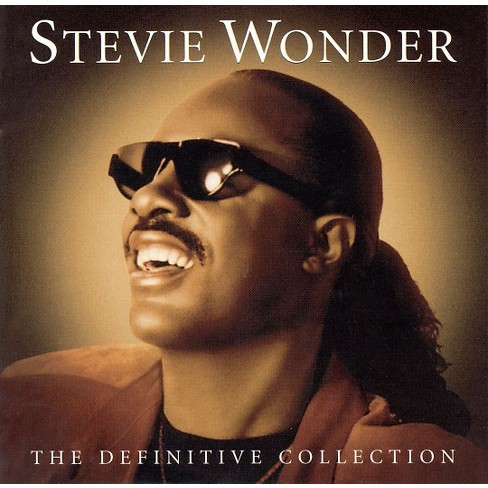
" Superstition "is a song by American singer-songwriter Stevie Wonder. It was released on October 24, 1972, as the lead single from his fifteenth studio album, Talking Book (1972), by Tamla. The lyrics describe popular superstitions and their negative effects.
"Superstition" reached number one in the U.S. Billboard Hot 100 and on the soul singles chart. It was Wonder's first number-one single since "Fingertips, Pt. 2" in 1963. It peaked at number eleven in the UK Singles Chart in February 1973. In November 2004, Rolling Stone ranked the song number 74 on their list of the 500 Greatest Songs of All Time.
[video width="640" height="360" mp4="https://www.easypianoonline.com/wp-content/uploads/2021/05/Superstition.mp4"]
Lyrics
Superstition
Very superstitious,
Writing's on the wall,
Very superstitious,
Ladders bout' to fall,
Thirteen month old baby,
Broke the lookin' glass
Seven years of bad luck,
The good things in your past
When you believe in things
That you don't understand,
Then you suffer,
Superstition aint the way
Hey
Very superstitious,
Wash your face and hands,
Rid me of the problem,
Do all that you can,
Keep me in a daydream,
Keep me goin' strong,
You don't wanna save me,
Sad is the soul
When you believe in things
That you don't understand,
Then you suffer,
Superstition ain't the way,
Yeh, yeh
Very superstitious,
Nothin' more to say,
Very superstitious,
The devil's on his way,
Thirteen month old baby,
Broke the lookin' glass,
Seven years of bad luck,
Good things in your past
When you believe in things
That you don't understand,
Then you suffer,
Superstition ain't the way,
No, no, no
Songwriters: Stevie Wonder

[xyz-ihs snippet="NavigationLinksBlock-Common"]
Prima Donna
by Andrew Lloyd Webber
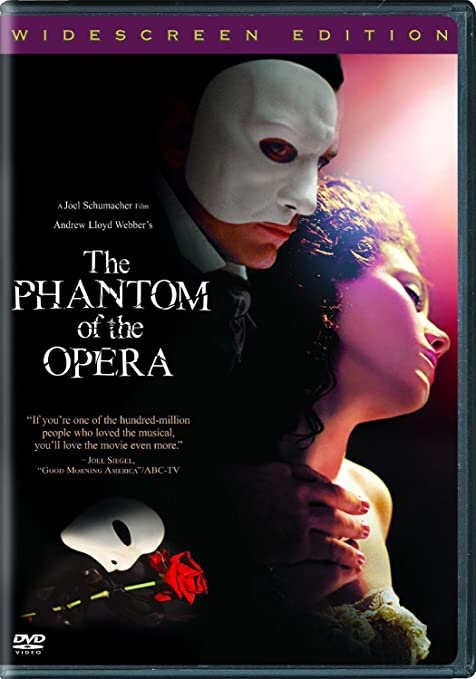
" Prima Donna " is a song from the 1986 musical The Phantom Of The Opera with music by Andrew Lloyd Webber, lyrics by Charles Hart, and a libretto by Lloyd Webber and Richard Stilgoe. Based on the 1910 French novel of the same name by Gaston Leroux, its central plot revolves around a beautiful soprano, Christine Daaé, who becomes the obsession of a mysterious, masked musical genius living in the subterranean labyrinth beneath the Paris Opéra House.
The musical opened in London's West End in 1986, and on Broadway in 1988. It won the 1986 Olivier Award and the 1988 Tony Award for Best Musical, and Michael Crawford (in the title role) won the Olivier and Tony Awards for Best Actor in a Musical. It is currently the longest running show in Broadway history, and celebrated its 10,000th Broadway performance on 11 February 2012, the first production ever to do so.
[video width="640" height="360" mp4="https://www.easypianoonline.com/wp-content/uploads/2021/05/PrimaDonna.mp4"]
Lyrics
Prima Donna
Your devotees are on their knees to implore you
Can you bow out when they're shouting your name?
Think of how they all adore you
Prima Donna, enchant us once again
Think of your muse and of the queues 'round the theatre!
Can you deny us the triumph in store?
Sing, Prima Donna, once more (Christine spoke of an angel)
Prima Donna, your song shall live again
(Think of your public) you took a snub
But there's a public who needs you
Those who hear your voice liken you to an angel
Think of the cry of undying support (we get our opera)
Follow where the limelight leads you (she gets her limelight)
Leading ladies are a trial
Prima Donna, your song shall never die (when she sings we see heaven)
You'll sing again (orders, warning)
(Lunatic demands are regular occurrences)
Think how you'll shine in that final encore (surely there'll be further scenes)
Sing, Prima Donna, once more (worse than this)
(I must see these demands are rejected!)
Who'd believe a diva happy to relieve
A chorus girl whose gone and slept with the patron?
Raoul and the soubrette entwined in love's duet
Although he may demur he must have been with her
You'd never get away with all this in a play
But if it's loudly sung and in a foreign tongue
It's just the sort of story, audiences adore
In fact, a perfect opera (for if his curse is on this opera)
Prima Donna, the world is at your feet
A nation waits, and how it hates to be cheated!
Light up the stage with that age-old rapport
Sing, Prima Donna
Once more!
Songwriters: Andrew Lloyd Webber / Richard Henry Zachary S. Stilgoe / Charles A. Hart

[xyz-ihs snippet="NavigationLinksBlock-Common"]
Masquerade
by Andrew Lloyd Webber
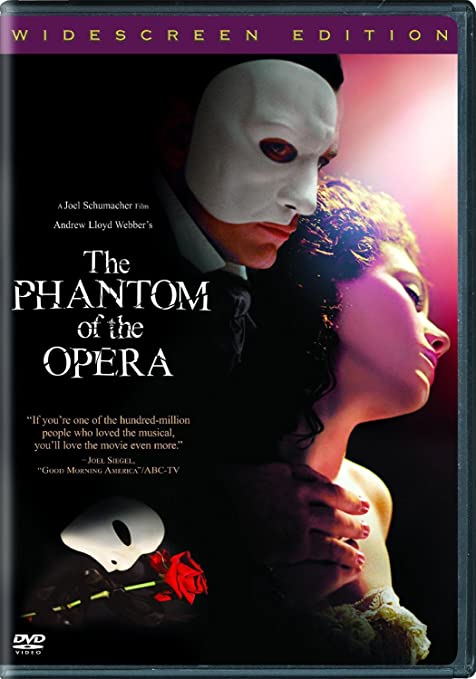
" Masquerade " is a song from the 1986 musical The Phantom Of The Opera with music by Andrew Lloyd Webber, lyrics by Charles Hart, and a libretto by Lloyd Webber and Richard Stilgoe. Based on the 1910 French novel of the same name by Gaston Leroux, its central plot revolves around a beautiful soprano, Christine Daaé, who becomes the obsession of a mysterious, masked musical genius living in the subterranean labyrinth beneath the Paris Opéra House.
The musical opened in London's West End in 1986, and on Broadway in 1988. It won the 1986 Olivier Award and the 1988 Tony Award for Best Musical, and Michael Crawford (in the title role) won the Olivier and Tony Awards for Best Actor in a Musical. It is currently the longest running show in Broadway history, and celebrated its 10,000th Broadway performance on 11 February 2012, the first production ever to do so.
[video width="640" height="360" mp4="https://www.easypianoonline.com/wp-content/uploads/2021/05/Masquerade.mp4"]
Lyrics
Masquerade
Paper faces on parade . . .
Masquerade!
Hide your face,
So the world will
Never find you!
Masquerade!
Every face a different shade . . .
Masquerade!
Look around -
There's another
Mask behind you!
Flash of mauve . . .
Splash of puce . . .
Fool and king . . .
Ghoul and goose . . .
Green and black . . .
Queen and priest . . .
Trace of rouge . . .
Face of beast . . .
Faces . . .
Take your turn, take a ride
On the merry-go-round . . .
In an inhuman race . . .
Eye of gold . . .
Thigh of blue . . .
True is false . . .
Who is who . . .?
Curl of lip . . .
Swirl of gown . . .
Ace of hearts . . .
Face of clown . . .
Faces . . .
Drink it in, drink it up,
Till you've drowned
In the light . . .
In the sound . . .
RAOUL/CHRISTINE
But who can name the face . . .?
ALL
Masquerade!
Grinning yellows,
Spinning reds . . .
Masquerade!
Take your fill -
Let the spectacle
Astound you!
Masquerade!
Burning glances,
Turning heads . . .
Masquerade!
Stop and stare
At the sea of smiles
Around you!
Masquerade!
Seething shadows
Breathing lies . . .
Masquerade!
You can fool
Any friend who
Ever knew you!
Masquerade!
Leering satyrs,
Peering eyes . . .
Masquerade!
Run and hide -
But a face will
Still pursue you!
GIRY
What a night
MEG
What a crowd!
ANDRE
Makes you glad!
FIRMIN
Makes you proud!
All the creme
De la creme!
CARLOTTA
Watching us watching them!
MEG/GlRY
And all our fears
Are in the past!
ANDRE
Six months...
PIANGI
Of relief!
CARLOTTA
Of delight!
ANDRE/FIRMIN
Of Elysian peace!
MEG/GIRY
And we can breathe at last!
CARLOTTA
No more notes!
PIANGI
No more ghost!
GIRY
Here's a health!
ANDRE
Here's a toast:
To a prosperous year!
FIRMIN
To the new chandelier!
PIANGI/CARLOTTA
And may its
Splendour never fade!
FIRMIN
Six months!
GIRY
What a joy!
MEG
What a change!
FIRMIN/ANDRE
What a blessed release!
ANDRE
And what a masquerade!
CHRISTINE
Think of it!
A secret engagement!
Look - your future bride!
Just think of it!
RAOUL
But why is it secret?
What have we to hide?
CHRISTINE
Please, let's not fight . . .
RAOUL
Christine, you're free!
CHRISTINE
Wait till the time is right . . .
RAOUL
When will that be?
It's an engagement,
Not a crime!
Christine,
What are you
Afraid of?
CHRISTINE
Let's not argue . . .
RAOUL
Let's not argue . . .
CHRISTINE
Please pretend . . .
RAOUL
I can only hope I'll . . .
CHRISTINE
You will . . .
BOTH
. . . understand
In time . . .
ALL
Masquerade!
Paper faces on parade!
Masquerade!
Hide your face,
So the world will
Never find you!
Masquerade!
Every face a different shade!
Masquerade!
Look around -
There's another
Mask behind you!
Masquerade!
Burning glances,
Turning heads . . .
Masquerade!
Stop and stare
At the sea of smiles
Around you!
Masquerade!
Grinning yellows,
Spinning reds . . .
Masquerade!
Take your fill -
Let the spectacle
Astound you
PHANTOM
Why so silent, good messieurs?
Did you think that I had left you for good?
Have you missed me, good messieurs?
I have written you an opera!
Here I bring the finished score -
"Don Juan Triumphant"!
I advise you
To comply -
My instructions
Should be clear -
Remember
There are worse things
Than a shattered chandelier . . .
Your chains are still mine -
You will sing for me!
Songwriters: Andrew Lloyd Webber / Richard Henry Zachary S. Stilgoe / Charles A. Hart

[xyz-ihs snippet="NavigationLinksBlock-Common"]
Watermark
by Enya
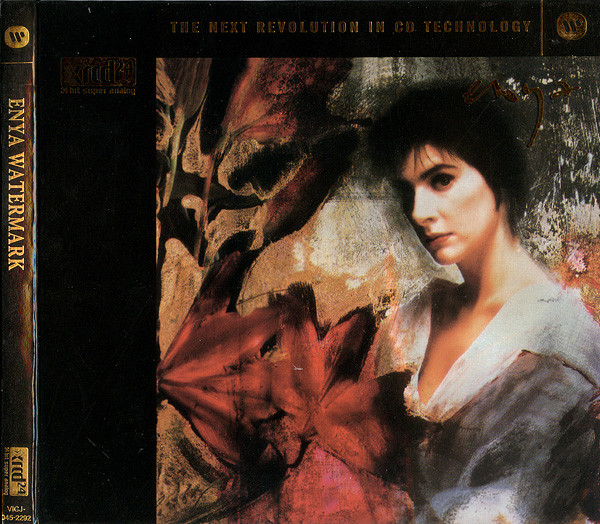
" Watermark " is the first song from the album Watermark by Irish singer, songwriter and musician Enya. Watermark is the second studio album, released on 19 September 1988 by WEA. After the release of her previous album Enya (1987), she secured a recording contract with Warner after a chance meeting with chairman Rob Dickins, who had become a fan of her music. Her contract allowed her considerable artistic and creative freedom, with minimal interference from the label and no deadlines to have albums finished. Enya recorded Watermark in ten months with her longtime collaborators, manager, producer and arranger Nicky Ryan and his wife, lyricist Roma Ryan. It was initially recorded in Ireland in demo form before production relocated to London to re-record, mix, and master it digitally. Watermark features music in different styles, displaying Enya's sound of multi-tracked vocals with keyboards, percussion instruments, and elements of Celtic, ambient, and New-age music, though Enya believes her music does not belong in the latter genre.
[video width="640" height="360" mp4="https://www.easypianoonline.com/wp-content/uploads/2021/05/Watermark.mp4"]
Lyrics
Watermark
the one who loves you?
No. Love is forever.
In your eyes is the sadness of one
who remembers their loss.
Love will not leave you.
Love does not fall under a name or
the mark on a page.
Love is unencumbered,
it's free and it's pure and it's brave.
In your heart is the island
where memories wash on the shore.
Love is an ocean.
Has the night taken from you
the one who belongs to you?
No. Love is forever.
Songwriters: Enya / Roma Ryan / Nicky Ryan

[xyz-ihs snippet="NavigationLinksBlock-Common"]
The Way You Look Tonight
by Jerome Kern
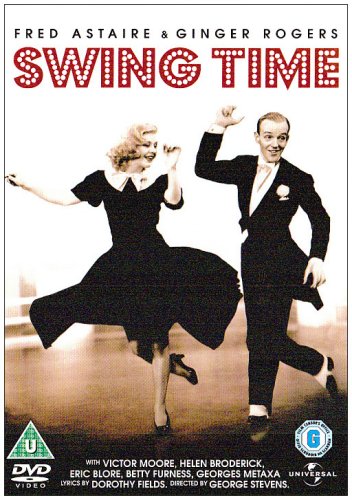
" The Way You Look Tonight " is a song from the film Swing Time that was performed by Fred Astaire and composed by Jerome Kern with lyrics written by Dorothy Fields. It won the Academy Award for Best Original Song in 1936.Fields remarked, "The first time Jerry played that melody for me I went out and started to cry. The release absolutely killed me. I couldn't stop, it was so beautiful."
In the movie, Astaire sang "The Way You Look Tonight" to Ginger Rogers while she was washing her hair in an adjacent room. His recording reached the top of the charts in 1936. Other versions that year were by Guy Lombardo and by Teddy Wilson with Billie Holiday.
[video width="640" height="360" mp4="https://www.easypianoonline.com/wp-content/uploads/2021/05/TheWayYouLookTonight.mp4"]
Lyrics
The Way You Look Tonight
When the world is cold
I will feel a glow just thinking of you
And the way you look tonight
Yes, you're lovely, with your smile so warm
And your cheeks so soft
There is nothing for me but to love you
And the way you look tonight
With each word your tenderness grows
Tearin' my fear apart
And that laugh, wrinkles your nose
Touches my foolish heart
Lovely, never, never change
Keep that breathless charm
Won't you please arrange it?
'Cause I love you
A-just the way you look tonight
And that laugh that wrinkles your nose
It touches my foolish heart
Lovely, don't you ever change
Keep that breathless charm
Won't you please arrange it?
'Cause I love you
A-just the way you look tonight
Mm, mm, mm, mm,
Just the way you look tonight
Songwriters: Dorothy Fields / Jerome Kern

[xyz-ihs snippet="NavigationLinksBlock-Common"]
The Lonely Shepherd
by James Last
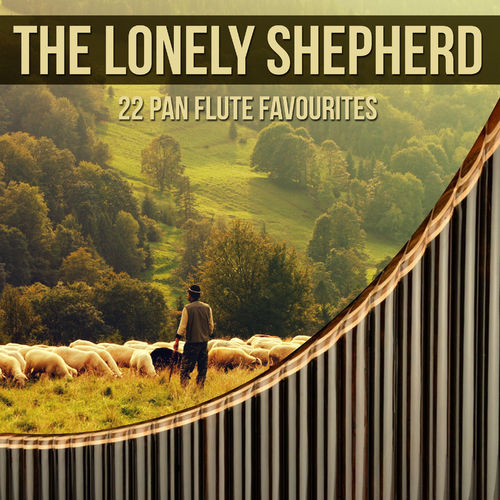
" The Lonely Shepherd " also known as Einsamer Hirte or Der einsame Hirte in German or as El pastor solitario in Spanish, is an instrumental piece by James Last, first released in a recording with the Romanian panflutist Gheorghe Zamfir. Originally, the title was planned for the album Filmusik ohne Filme[citation needed], which was only to contain original compositions by James Last. This album was never released, so "The Lonely Shepherd " was published on Last's 1977 album Russland Erinnerungen (Memories of Russia). In the same year, it was also released as a single, which reached 22nd on the music charts in Germany. With this recording, Gheorghe Zamfir, who had already published a number of records, succeeded in an international breakthrough. Among other things, he accompanied James Last in his 1978 tour.
"The Lonely Shepherd" has repeatedly been used as soundtrack. In 1979, it was used as the title theme for the six-part television series Golden Soak (Das Gold der Wüste). In 1983 it was used as the love theme of a Venezuelan series called "Chao, Cristina" produced by the Venezuelan TV network RCTV and again in 1984 in the Oscar-nominated animated short film "Paradise" In 2003, Quentin Tarantino used the recording as soundtrack in a scene and in the closing credits of his film Kill Bill: Volume 1.
[video width="640" height="360" mp4="https://www.easypianoonline.com/wp-content/uploads/2021/05/TheLonelyShepherd.mp4"]

[xyz-ihs snippet="NavigationLinksBlock-Common"]
Satin Doll
by Duke Ellington
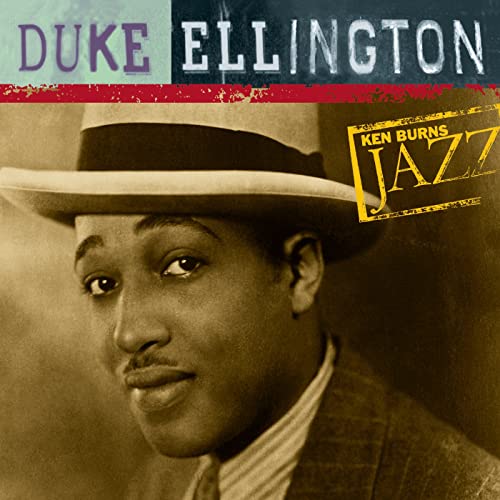
" Satin Doll " is a jazz standard written by Duke Ellington and Billy Strayhorn with lyrics by Johnny Mercer.Written in 1953, the song has been recorded by Ella Fitzgerald, 101 Strings, Terry Callier, and Nancy Wilson. Its chord progression is well known for its unusual use of chords and opening with a ii-V-I turnaround. Johnny Mercer was often asked to write lyrics to already popular songs. Lyrics to "Satin Doll" were written after the song was a hit in its instrumental version. Ellington used "Satin Doll" as the closing number in most of his concerts.
[video width="640" height="360" mp4="https://www.easypianoonline.com/wp-content/uploads/2021/05/SatinDoll.mp4"]
Lyrics
Satin Doll
Over her shoulder - she digs me
Out cattin' - that satin doll
Baby shall we go - out skippin'
Careful amigo - you're flippin'
Speaks latin - that satin doll
She's nobody's fool so I'm playing it cool as can be
I'll give it a whirl but I ain't for no girl catching me
Telephone numbers - well you know
Doing my rhumbas - with uno
And that'n my satin doll
Songwriters: Duke Ellington / Johnny Mercer / Billy Strayhorn

[xyz-ihs snippet="NavigationLinksBlock-Common"]
When The Saints
Go marching In
(Traditional)
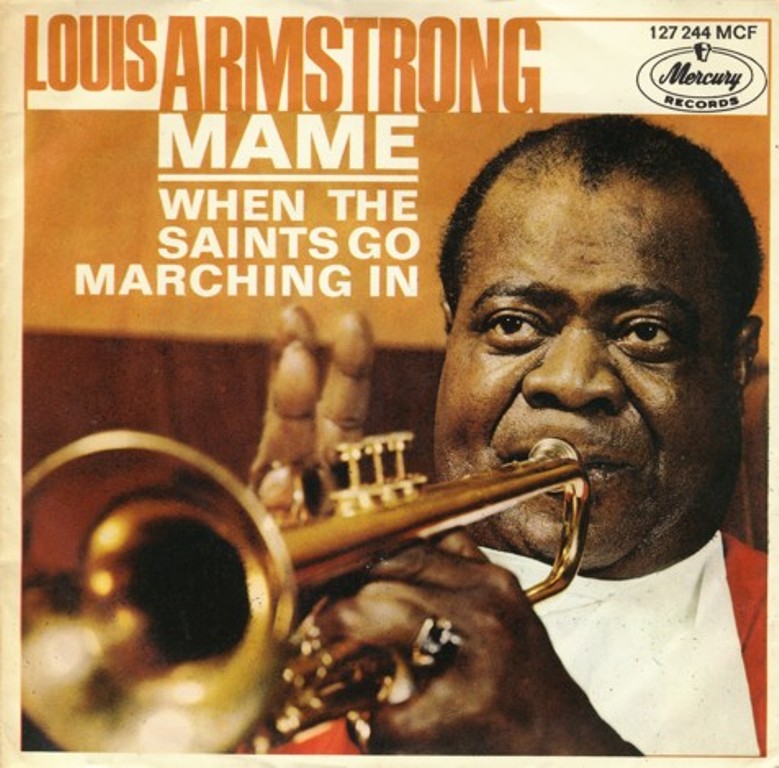
" When The Saints Go marching In " often referred to as simply "The Saints", is a black spiritual. Though it originated as a Christian hymn, it is often played by jazz bands. This song was famously recorded on May 13, 1938, by Louis Armstrong and his orchestra. The origins of this song are unclear. It apparently evolved in the early 1900s from a number of similarly titled gospel songs, including "When the Saints Are Marching In" (1896 and "When the Saints March In for Crowning" (1908). The first known recorded version was in 1923 by the Paramount Jubilee Singers on Paramount 12073. Although the title given on the label is "When All the Saints Come Marching In", the group sings the modern lyrics beginning with "When the saints go marching in". No author is shown on the label. Several other gospel versions were recorded in the 1920s, with slightly varying titles but using the same lyrics, including versions by The Four Harmony Kings (1924), Elkins-Payne Jubilee Singers (1924), Wheat Street Female Quartet (1925), Bo Weavil Jackson (1926), Deaconess Alexander (1926), Rev. E. D. Campbell (1927), Robert Hicks (AKA Barbecue Bob, 1927), Blind Willie Davis (1928), and the Pace Jubilee Singers (1928).
[video width="640" height="360" mp4="https://www.easypianoonline.com/wp-content/uploads/2021/05/WhenTheSaintsGoMarchingIn.mp4"]
Lyrics
When The Saints Go Marching In
Oh, when the saints go marching in
Oh, when the saints go marching in
Oh Lord I want to be in that number
When the saints go marching in.
Oh, when the drums begin to bang
Oh, when the drums begin to bang
Oh Lord I want to be in that number
When the saints go marching in.
Oh, when the stars fall from the sky
Oh, when the stars fall from the sky
Oh Lord I want to be in that number
When the saints go marching in.
Oh, when the moon turns red with blood
Oh, when the moon turns red with blood
Oh Lord I want to be in that number
When the saints go marching in.
Oh, when the trumpet sounds its call
Oh, when the trumpet sounds its call
Oh Lord I want to be in that number
When the saints go marching in.
Oh, when the horsemen begin to ride
Oh, when the horsemen begin to ride
Oh Lord I want to be in that number
When the saints go marching in.
Oh, brother Charles you are my friend
Oh, brother Charles you are my friend
Yea, you gonna be in that number
When the saints go marching in.
Oh, when the saints go marching in
Oh, when the saints go marching in
Oh Lord I want to be in that number
When the saints go marching in.
Songwriters: Traditional

[xyz-ihs snippet="NavigationLinksBlock-Common"]
Part Of Your World
by Alan Menken
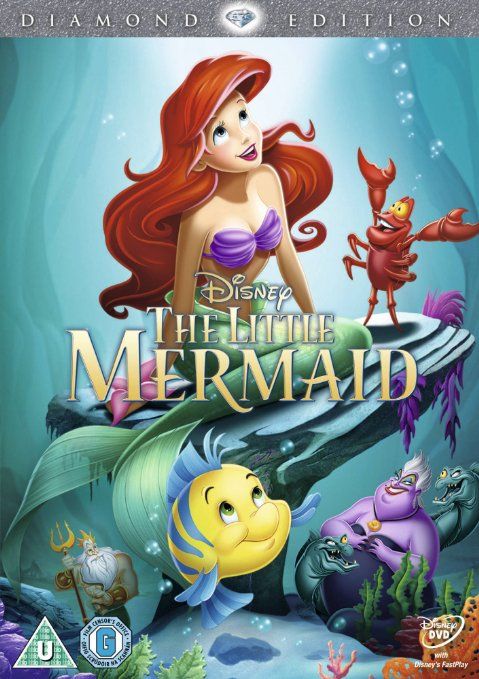
" Part Of Your World " is a song written by lyricist Howard Ashman and composer Alan Menken for Disney's animated feature film The Little Mermaid (1989). Performed by American actress and singer Jodi Benson in the titular role as Ariel, a mermaid princess, "Part of Your World" is a power ballad in which the main character expresses her strong desire to become human; its lyrics use placeholder names in lieu of several human-related terms that would be unfamiliar to a mermaid. The film's theme song, "Part of Your World" is reprised by Ariel after she rescues Eric, a human prince with whom she has fallen in love, from drowning.
[video width="640" height="360" mp4="https://www.easypianoonline.com/wp-content/uploads/2021/05/PartOfYourWorld.mp4"]
Lyrics
Part Of Your World
Isn't it neat?
Wouldn't you think my collection's complete?
Wouldn't you think I'm the girl
The girl who has everything?
Look at this trove
Treasures untold
How many wonders can one cavern hold?
Looking around here you'd think
Sure, she's got everything
I've got gadgets and gizmos a-plenty
I've got whozits and whatzits galore
You want thingamabobs?
I've got twenty!
But who cares?
No big deal
I want more
I wanna be where the people are
I wanna see, wanna see 'em dancin'
Walking around on those, what do you call 'em?
Oh, feet
Flippin' your fins, you don't get too far
Legs are required for jumping, dancing
Strolling along down the, what's that word again?
Street
Up where they walk, up where they run
Up where they stay all day in the sun
Wanderin' free, wish I could be
Part of that world
What would I give if I could live out of these waters?
What would I pay to spend a day warm on the sand?
Bet'cha on land they understand
Bet they don't reprimand their daughters
Bright young women, sick of swimmin'
Ready to stand
And ready to know what the people know
Ask 'em my questions and get some answers
What's a fire and why does it, what's the word?
Burn?
When's it my turn?
Wouldn't I love, love to explore that shore up above?
Out of the sea
Wish I could be
Part of that world
Songwriters: Howard Elliott Ashman / Alan Menken

[xyz-ihs snippet="NavigationLinksBlock-Common"]
My Wild Irish Rose
by Chauncey Olcott
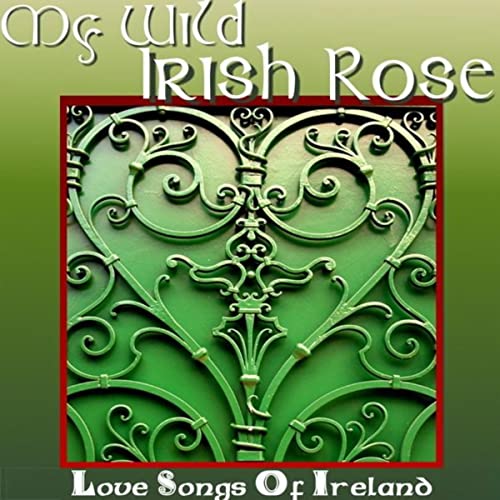
" My Wild Irish Rose " is probably the most famous song Irish-American Chauncey Olcott churned out. The inspiration for this solo composition was revealed by his wife Margaret after his death. On a visit to his mother's homeland in 1898, a young boy gave her a flower. When she asked him what it was called he replied "...a wild Irish Rose." She put the flower in an album, and later when her husband asked her for suggestions for a song title she opened the album, pointed to it and said: "There's the title for your new song." The ballad went into A Romance Of Athlone the following year, and the sheet music was published by the New York firm Witmark.
[video width="640" height="360" mp4="https://www.easypianoonline.com/wp-content/uploads/2021/05/MyWildIrishRose.mp4"]
Lyrics
My Wild Irish Rose
Of a flower that's now dropped and dead,
Yet dearer to me, yes than all of its mates,
Though each holds aloft its proud head.
Twas given to me by a girl that I know,
Since we've met, faith I've known no repose.
She is dearer by far than the world's brightest star,
And I call her my wild Irish Rose.
My wild Irish Rose, the sweetest flower that grows.
You may search everywhere, but none can compare with my wild Irish Rose.
My wild Irish Rose, the dearest flower that grows,
And some day for my sake, she may let me take the bloom from my wild Irish Rose.
They may sing of their rose, which by other names,
Would smell just as sweetly, they say.
But I know that my Rose would never consent
To have that sweet name taken away.
Her glances are shy when e'er I pass by
The bower where my true love grows,
And my one wish has been that some day I may win
The heart of my wild Irish Rose.
My wild Irish Rose, the sweetest flower that grows.
You may search everywhere, but none can compare with my wild Irish Rose.
My wild Irish Rose, the dearest flower that grows,
And some day for my sake, she may let me take the bloom from my wild Irish Rose.
Songwriters: Chauncey Olcott

[xyz-ihs snippet="NavigationLinksBlock-Common"]
Dalur
(Easy Version)
by Olafur Arnalds

" Dalur " is the fifth song from the album Island Songs V by Olafur Arnalds. In June 2016 Ólafur announced his Island Songs project, which would involve him working with director Baldvin Z and travelling to seven different locations in Iceland over seven weeks, collaborating with seven different artists. Each week the audio and video for each track would be released, culminating in the final track, "Doria", being released on 8 August 2016.
Ólafur Arnalds (born 3 November 1986) is an Icelandic multi-instrumentalist and producer from Mosfellsbær, Iceland. He mixes strings and piano with loops and beats, a sound ranging from ambient/electronic to atmospheric pop. He is also the former drummer for hardcore and metal bands Fighting Shit, Celestine, and others.
[video width="640" height="360" mp4="https://www.easypianoonline.com/wp-content/uploads/2021/05/Dalur.mp4"]

[xyz-ihs snippet="NavigationLinksBlock-Common"]
Toreador Song
(Votre toast, je peux vous le rendre)
(Easy Version)
by Georges Bizet
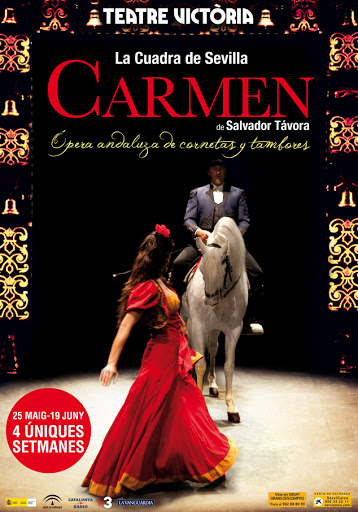
" Toreador Song "is the popular name for the aria "Votre toast, je peux vous le rendre" ("I toast you"), from the opera Carmen, composed by Georges Bizet to a libretto by Henri Meilhac and Ludovic Halévy. It is sung by the bullfighter (French: toréador) Escamillo as he enters in act 2 and describes various situations in the bullring, the cheering of the crowds and the fame that comes with victory. The refrain, "Toréador, en garde", forms the middle part of the prelude to act 1 of Carmen.
[video width="640" height="360" mp4="https://www.easypianoonline.com/wp-content/uploads/2021/05/ToreadorSong.mp4"]
Lyrics
Toreador Song
(English – Translation)
Señores, Señores, because with soldiers
yes, toreros can get along;
For the pleasures, for the pleasure
they fight!
The circus is full, it is a celebrating day!
The circus is full from top to bottom;
The crowd goes mad,
the crowd is arguing
with great deal!
Apostrophes, shouts and noises
Push to the breaking point!
Because it is the celebration of courage!
It is the celebration of the braves of heart!
Let's go! On guard! Let's go!
Let's go! Let's go! Ah!
(Chorus ×2)
Toreador, on guard! Toreador!
Toreador!
And contemplate well, yes contemplate
as you fight
that a dark eye is watching you,
and that love is waiting for you,
Toreador, love, love is waiting for you!
All at once, we are silent,
we are silent,... Oh, what is happening?
No more shouts, this is it!
No more shouts, this is it!
The bull is rushing
while jumping out of its fence!
He is rushing in! He's entering, hitting!
A horse is falling,
Dragging down a picador.
"Ah! Bravo! Toro!" the crowd is calling,
The bull goes on... he comes...
he comes, hitting once more!
While shaking his banderillas ,
full of rage, he runs!...
the circus is full of blood!
We flee... we pass the gates!
It's your turn now!
Let's go! On guard! Let's go! Let's go! Ah!
(Chorus ×2)
Toreador, on guard! Toreador!
Toreador!
And think well , yes think as you are fighting
that a dark eye is watching you,
and that love is waiting for you,
Toreador, love, love is waiting for you!
Love! Love! Love!
Toreador, Toreador, Toreador!
Votre toast, je peux vous le rendre
(French – Original)
Votre toast, je peux vous le rendre,
Señors, señors car avec les soldats
oui, les toréros, peuvent s'entendre;
Pour plaisirs, pour plaisirs,
ils ont les combats!
Le cirque est plein, c'est jour de fête!
Le cirque est plein du haut en bas;
Les spectateurs, perdant la tête,
Les spectateurs s'interpellent
À grand fracas!
Apostrophes, cris et tapage
Poussés jusques à la fureur!
Car c'est la fête du courage!
C'est la fête des gens de cœur!
Allons! en garde!
Allons! allons! Ah!
(Refrain ×2)
Toréador, en garde! Toréador!
Toréador!
Et songe bien, oui,
songe en combattant
Qu'un œil noir te regarde,
Et que l'amour t'attend,
Toréador, l'amour, l'amour t'attend!
Tout d'un coup, on fait silence,
On fait silence... ah! que se passe-t-il?
Plus de cris, c'est l'instant!
Plus de cris, c'est l'instant!
Le taureau s'élance
en bondissant hors du toril!
Il s'élance! Il entre, il frappe!...
un cheval roule,
entraînant un picador,
"Ah! Bravo! Toro!" hurle la foule,
le taureau va... il vient...
il vient et frappe encore!
En secouant ses banderilles,
plein de fureur, il court!
Le cirque est plein de sang!
On se sauve... on franchit les grilles!
C'est ton tour maintenant!
Allons! en garde! allons! allons! Ah!
(Refrain ×2)
Toréador, en garde! Toréador!
Toréador!
Et songe bien, oui, songe en combattant
Qu'un œil noir te regarde,
Et que l'amour t'attend,
Toréador, l'amour, l'amour t'attend!
L'amour! L'amour! L'amour!
Toréador, Toréador, Toreador!
Songwriters: Georges Bizet

[xyz-ihs snippet="NavigationLinksBlock-Common"]
Sheep May Safely Graze
(Cantata BWV 208)
(Easy Version)
by Johann Sebastian Bach
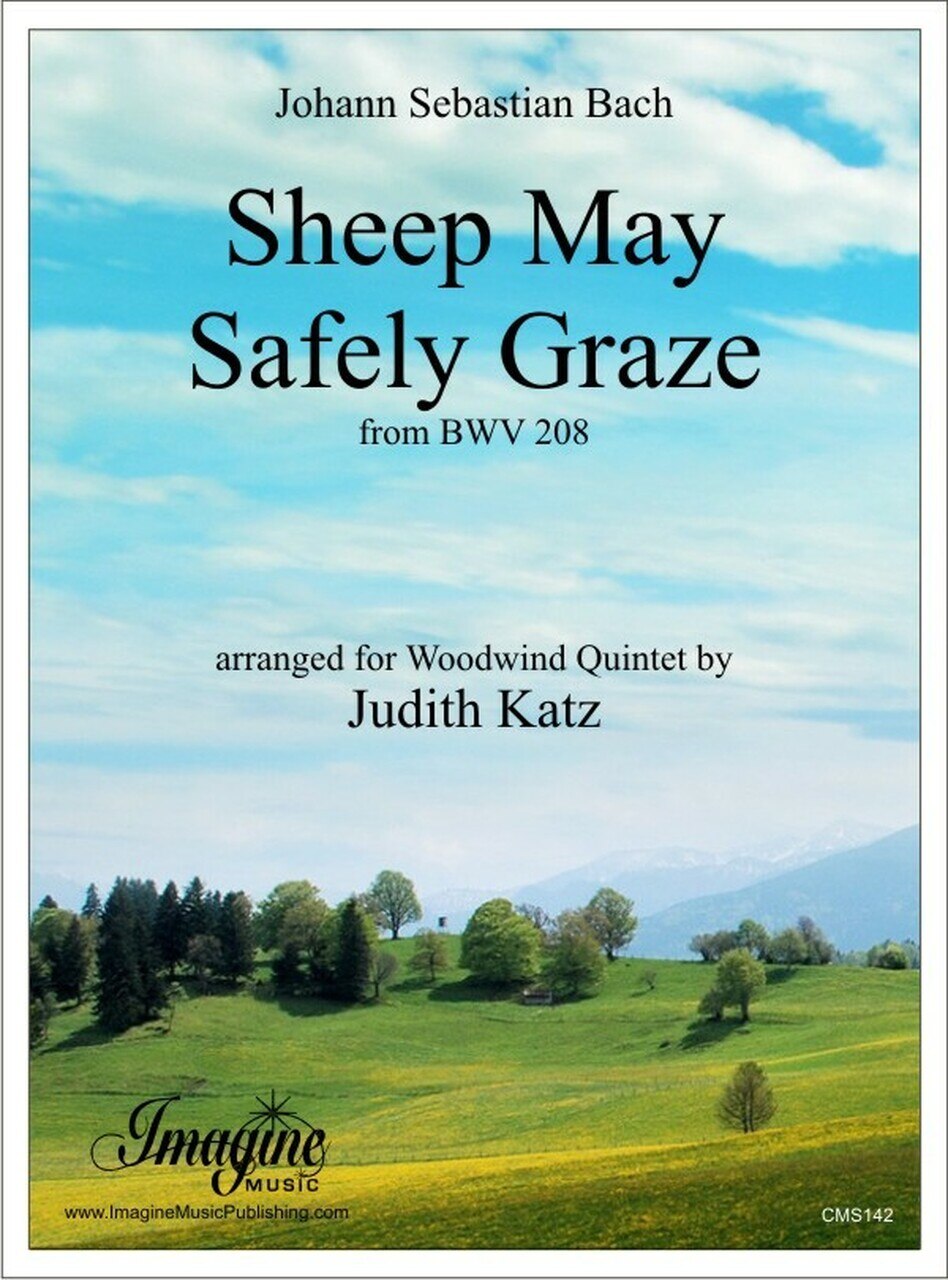
" Sheep May Safely Graze " is a soprano aria by Johann Sebastian Bach setting words by Salomon Franck. The piece was written in 1713 and is part of the cantata Was mir behagt, ist nur die muntre Jagd, BWV 208. The cantata's title translates The lively hunt is all my heart's desire, and it is also known as the Hunting Cantata.
Like the same composer's "Jesu, Joy of Man's Desiring", "Sheep may safely graze" is frequently played at weddings. However, the cantata of which it forms a part was originally written for a birthday celebration, that of Christian, Duke of Saxe-Weissenfels. Bach was based at the nearby court of Weimar, and musicians from both courts appear to have joined together in the first performance in Weißenfels. Bach is known to have used the music again for other celebrations, but it remained unpublished until after his death.
[video width="640" height="360" mp4="https://www.easypianoonline.com/wp-content/uploads/2021/05/SheepMaySeafelyGraze.mp4"]
Lyrics
Sheep May Safely Graze
(English - Translation)
In a watchful Shepherd's sight.
Those who rule with wisdom and guiding
Bring to hearts a peace abiding
Bless a land with joy made bright.
Schafe Können Sicher Weiden
(German – Original)
Schafe können sicher weiden,
wo ein guter Hirte wacht.
Wo Regenten wohl regieren,
Kann man Ruh' und Frieden spüren,
und was Lánder glücklich macht.
Songwriters: Johann Sebastian Bach / Salomon Franck







































